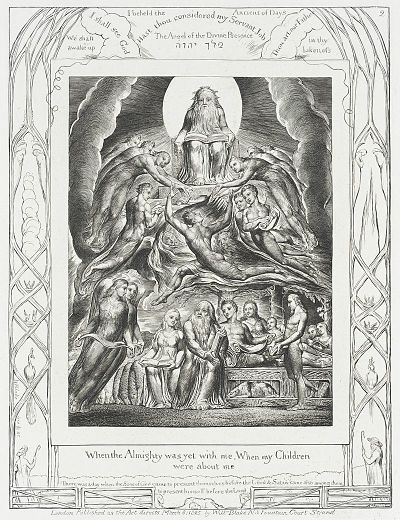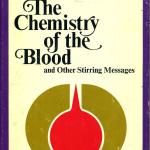 When it comes to literature, art, or human things, I learn by loving first and criticizing later. As I begin to read Cormac McCarthy, my first feeling is aversion. Son of God, the first novel I read, is dark and contains many wicked deeds. Yet friends say there is something more to McCarthy and I should think harder, listen, and read more.
When it comes to literature, art, or human things, I learn by loving first and criticizing later. As I begin to read Cormac McCarthy, my first feeling is aversion. Son of God, the first novel I read, is dark and contains many wicked deeds. Yet friends say there is something more to McCarthy and I should think harder, listen, and read more.
That is good advice and helps me see beauty where a smaller me could not. I will keep reading McCarthy.
Human creations are complicated. They tend to contain darkness and light, truth and falsehood, beauty and ugliness. That is obvious, but what is harder to do is to see why people love something that is, in the end, something I find more dark than light, more false than true, uglier with little beauty.
This does not always happen. I have yet to finish Triumph of the Will, a movie my film friends say is very beautifully made (on a very wicked topic). I just cannot.
Still, my default position when approaching religions is to look first for truth, goodness, and beauty. I read as if it is true and only criticize when I grasp a bit of it.
I reject the “all ways lead to God.” They might, but only if one keeps thinking and gets to Jesus. Christianity is true, best I can tell. That remains true even if many other religions contain truths, beauty, and goodness.
With all this in mind, I come to this question from my faithful interlocutor M*:
- Would you generally believe the religious claims made in books written by people who are adherents of the religion? Would you think that such books may be biased? Would you think such books may be biased if these books specifically said they were written so that others might believe?
Yes. yes, yes.
That is overly cute, but I do not wish M* to guess my opinion in all the explanation that follows!
One never wishes to commit the genetic fallacy. I try to examine the claims, ideas, and arguments of a work without trying to guess the motive. Even if I am being sold (a car or an idea), I judge the claims and not the motive since not all salesmen are cheats and not all altruists are right!
Books by adherents, lovers, of a religion are just the sort I wish to read. Napoleon said of battle: “You commit yourself and then you see.” So it is with a view of reality. It is hard to see if you are not part of that view.
I love to read the witness of atheists about why they are atheists, why I should be an atheist, and why my views are wrong. I measure the arguments, check the evidence, and enjoy the passion. They see something good and I gaze hard to see what that something is. Often I find a love of reason and as one who worships the Divine Logos (Word/Logic), that is admirable!
Are such testimonies or books biased? They are and I try to account for it. For example, I look for whether such texts include information difficult to their cause. When the Gospel has a woman eyewitness to Jesus’ resurrection, that is interesting to me. The Gospels also leave sayings of Jesus that sound as if Jesus is saying the end of time will come right at the destruction of the Temple. The copies of the books we have preserve such statements or other “hard sayings” of Jesus that critics from ancient times until now preserve.
These characteristics are found in other ancient religious documents and I am always glad when I find them, but I don’t need them. I assume I am being “pitched” any way . . . and such passages may be left to help the pitchman sound sincere. If you work sales, you learn not to oversell!
So I am left examining the claims, the beauty of the message and text, and the evidence for what the authors are saying. I treat Plato the same way, since I assume he too is selling something.
I might assert that every book is biased, so I trust the ones who tell us the bias up front, but I do not have to go that far. Easier to say this: some books that appear to be “unbiased” are, the appearance of objectivity is part of the sales pitch, so even those books that appear to be unbiased have to be examined on their merits. Some might be, some are not.
Who cares?
Let’s read, love, and see. When I first read the Book of Mormon, I loved the text. (It should be mandatory in all schools as the best selling American work of all time.) I get why people love the book. There is much truth in the Book of Mormon, much beauty. Sadly, however, I cannot be a Mormon. Why? Having seen why someone might be, I am convinced that it is wrong in its central claim to be another Testament of Jesus.
That is a very serious problem.
Still I do not reject the central claim because the book is “biased” or written by a believer. That is fallacious and unproductive. Opening one’s mind to other points of view in religion has not made me less sure of Orthodox Christianity, but more sure.
And I have also learned a thing or two. If you read the Gospels, examine them, love them, and then cannot accept them, I can only discuss your objections with you. If God and the Gospel cannot persuade, then my testimony cannot. Still, perhaps, I can remove some confusions that have obscured truth, goodness, and beauty and God will come as you take and read.
Perhaps. I pray God does.
——————-
*M is a non-Christian that sent me 55 questions early this year. He has asked that I not reveal his or her name. I will write as if “he” is a male, but this is for convenience. I do not know if I will get to all his questions. Here are questions 1, 2, 3, 6, 7, 8, 17, 19, 23, 26, 27, 28, 34, 35, 37, 39, 44, 47, 54 , and 55.















